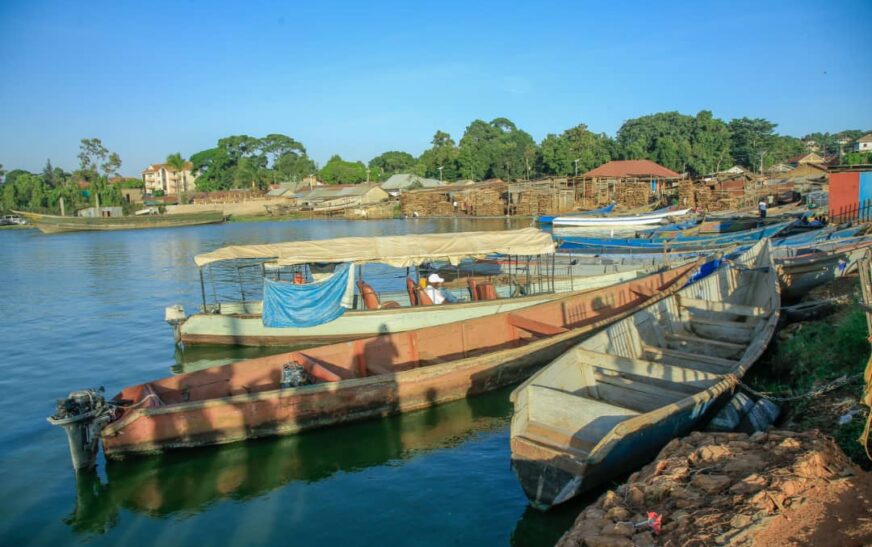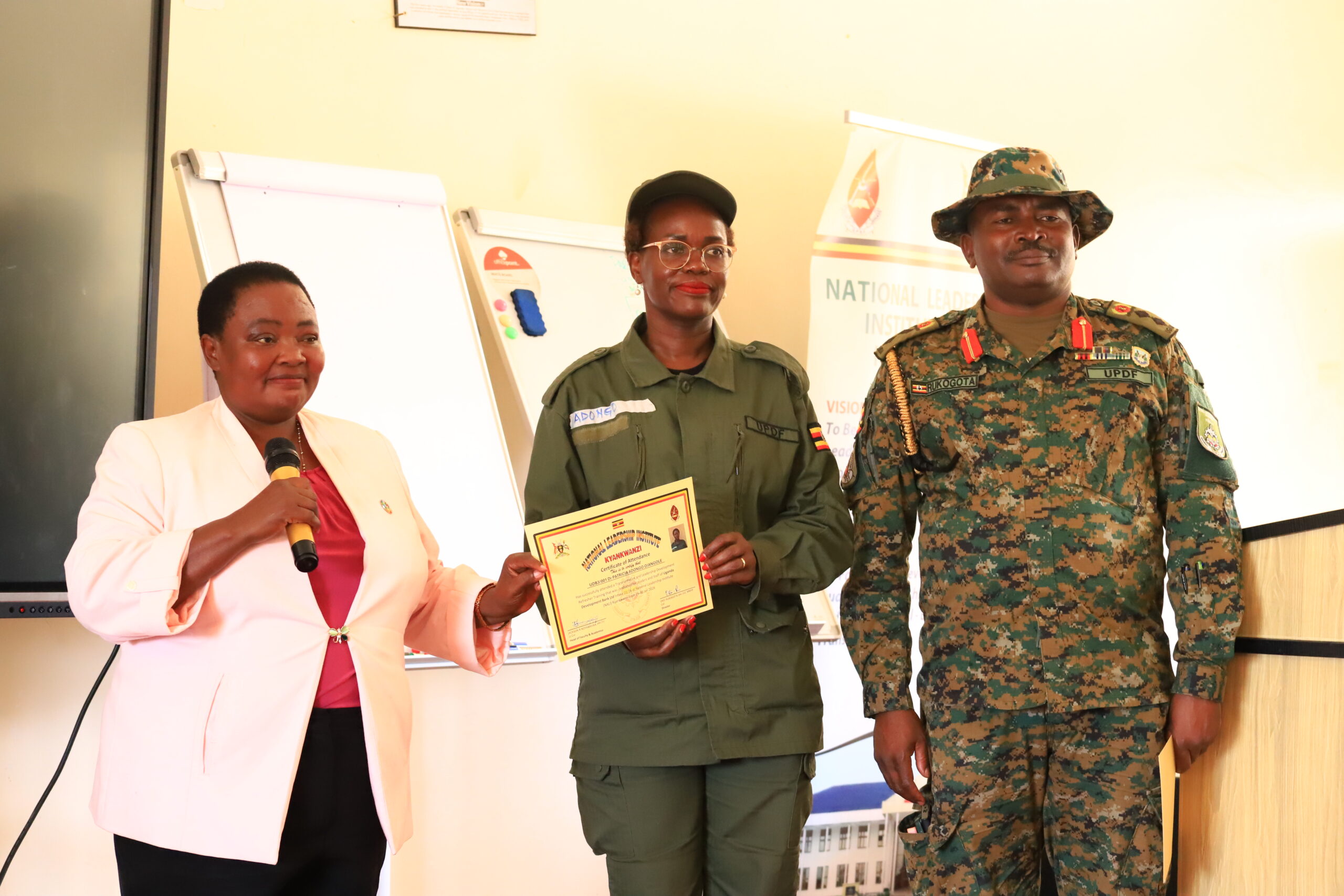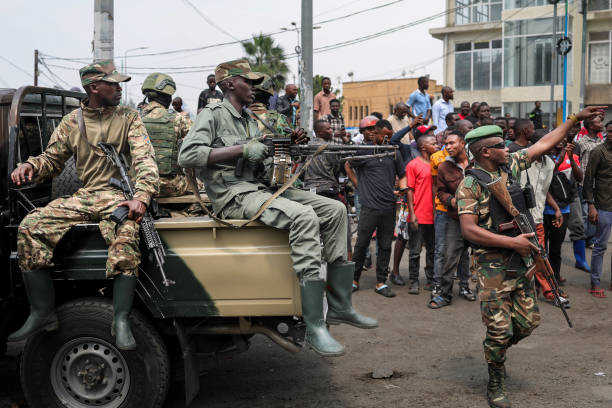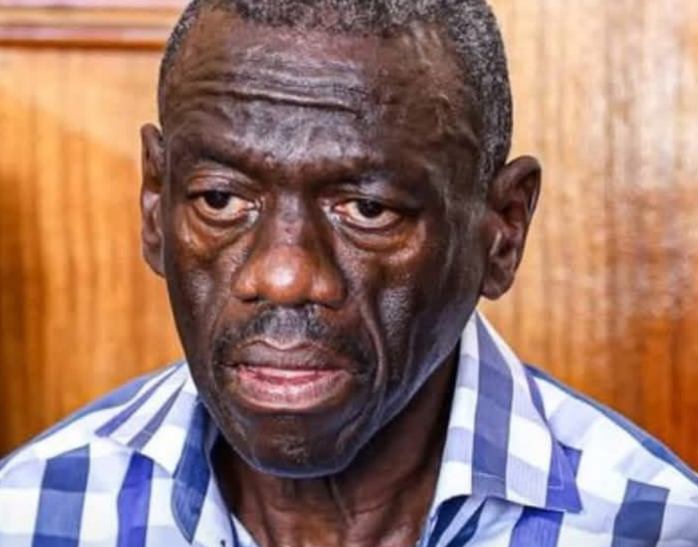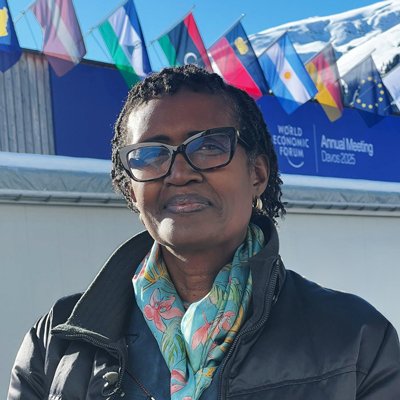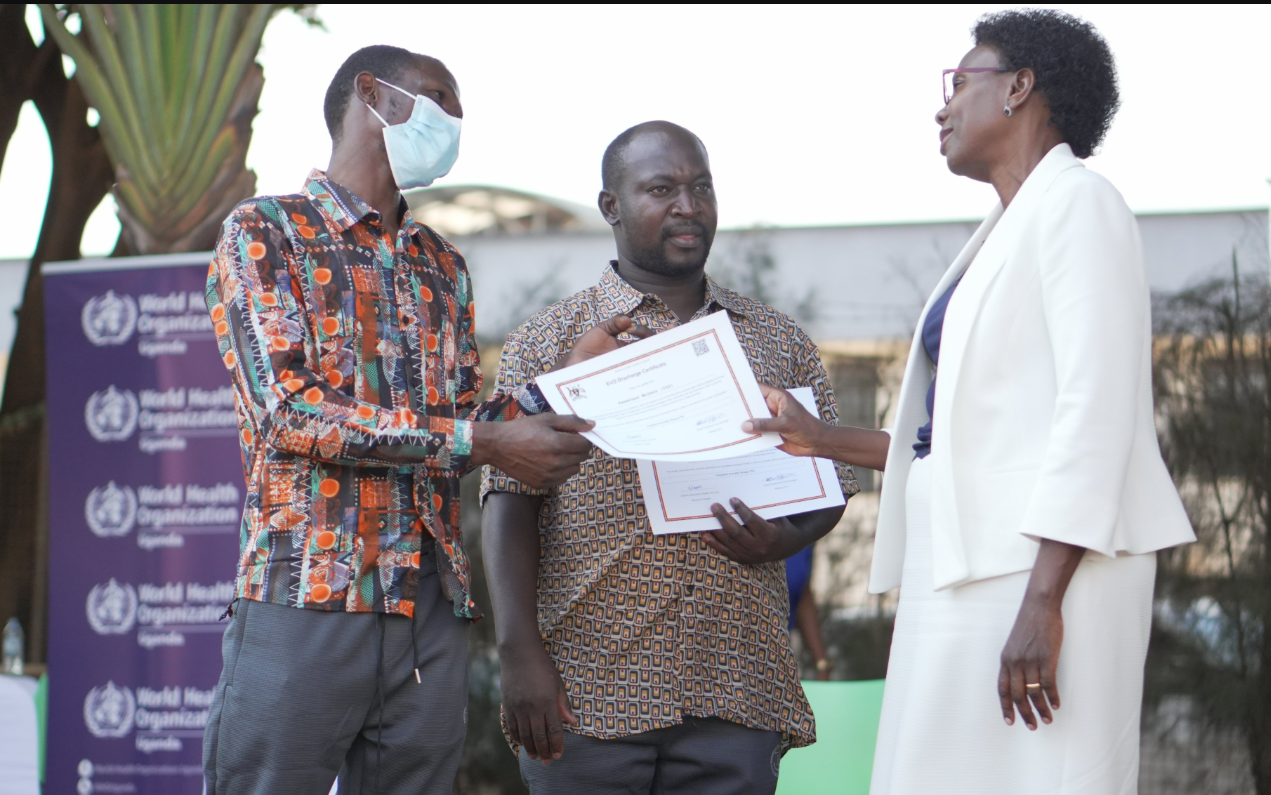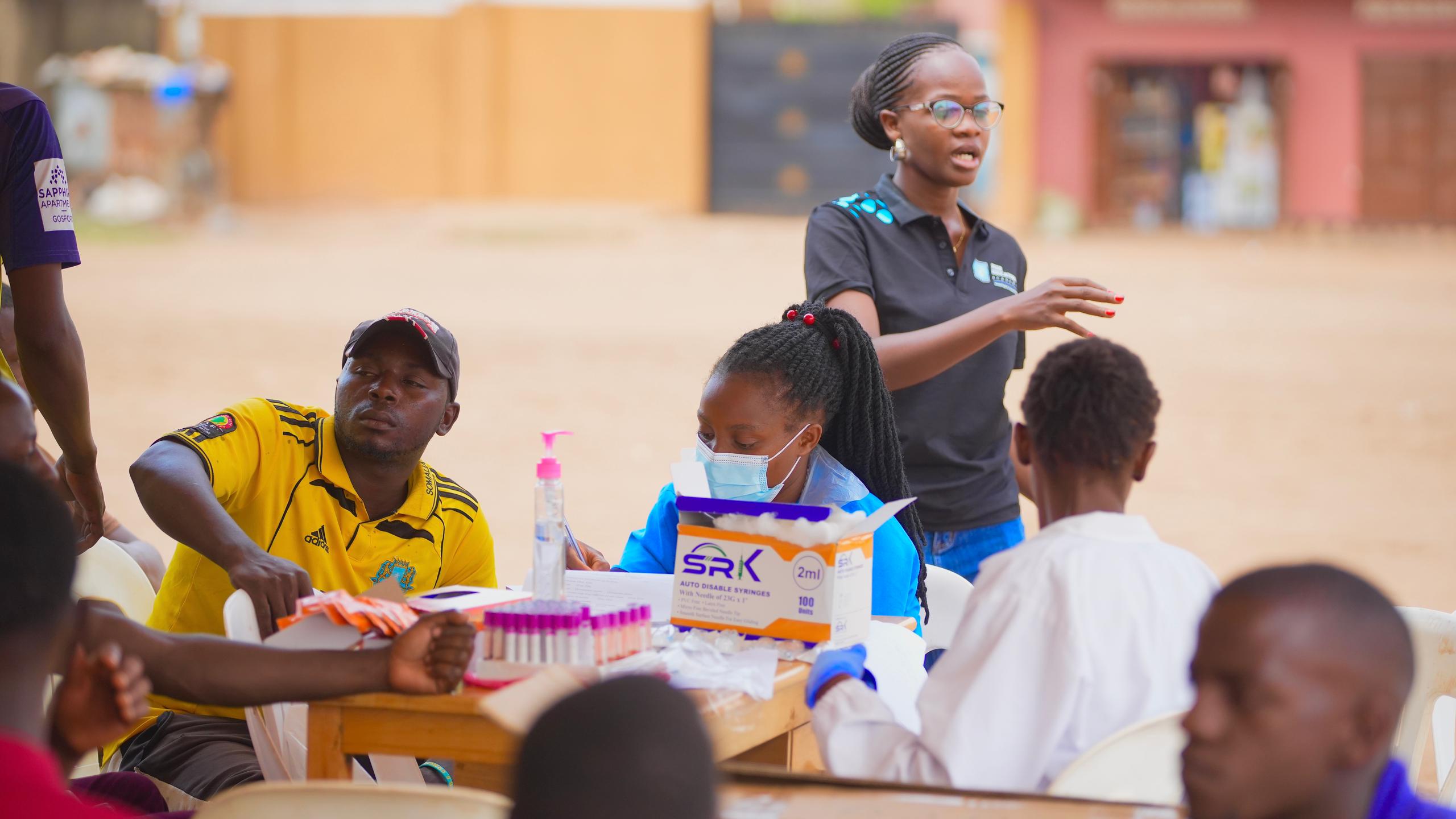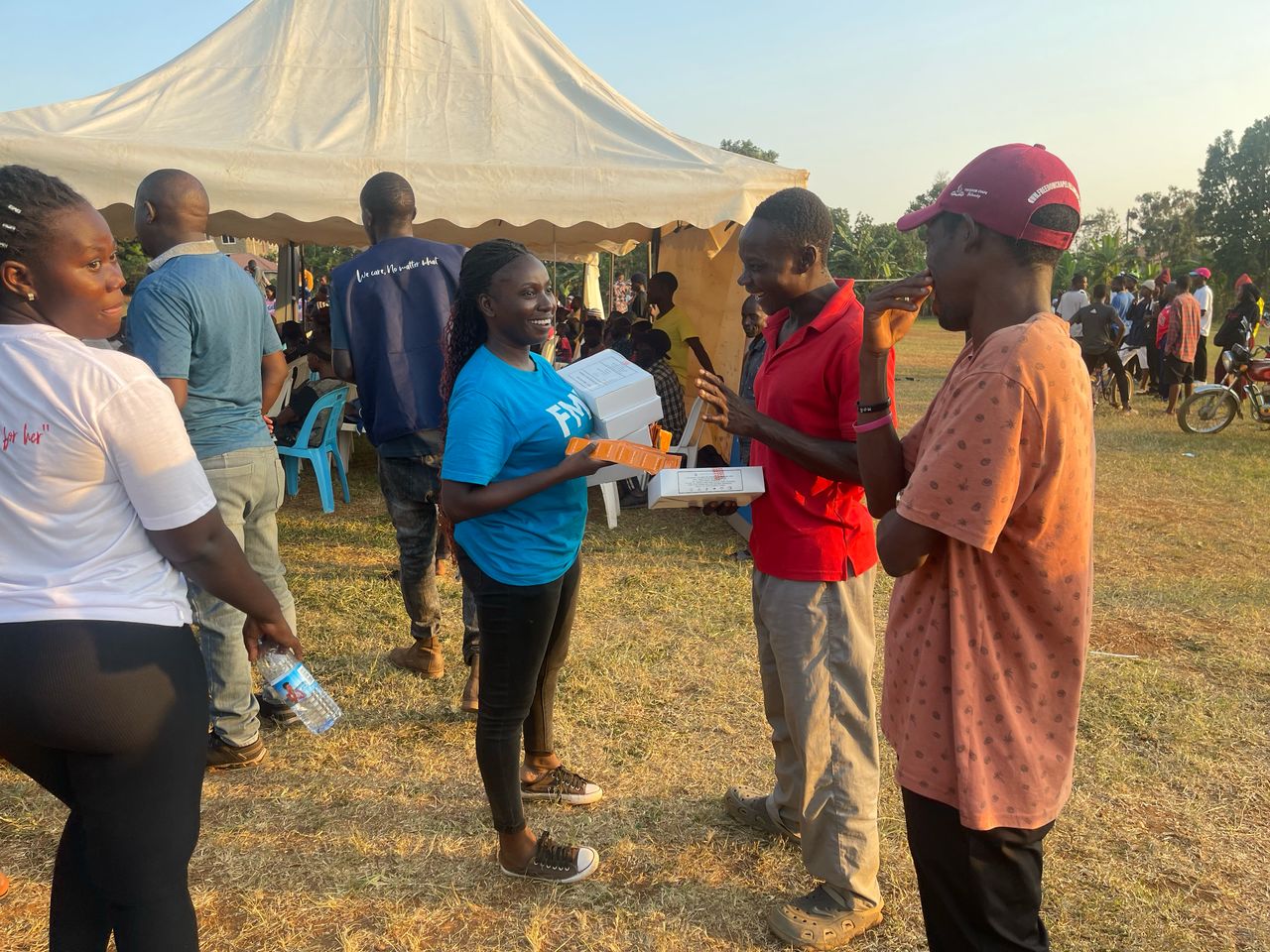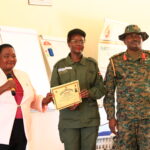More than 1,000 people have accessed Sexual and Reproductive Health and Rights (SRHR) services at Nakiwogo Landing Site as Uganda grapples with rising HIV infections. The services were provided during a moonlight outreach organized by Family Medical Point and Voices for Health and Development.
According to the Uganda AIDS Commission, the country recorded 38,000 new HIV infections in 2024, with 22,000 occurring among women—particularly adolescents and young women aged 15–24. HIV prevalence remains alarmingly high among sex workers in fishing communities, standing at 37% compared to the national average of 5.4%. Additionally, over 1,500 sex workers at various landing sites face stigma and discrimination, making it difficult for them to seek medical care.
Speaking during the outreach, Rose Mahoro, Communications Manager at Family Medical Point, highlighted the limited access to contraceptives at the Nakiwogo, Guuda, Kasenyi, and Kigungu landing sites. This shortage has increased the risk of unintended pregnancies and unsafe abortions.
Mahoro emphasized that condoms remain the most effective and affordable HIV prevention method. However, funding for condom programs and social marketing initiatives has declined.
“The recent U.S. government decision to impose a 90-day pause on all foreign assistance, including funding for programs under the President’s Emergency Plan for AIDS Relief (PEPFAR) and SRHR services, is a major setback. Enhancing the SRHR budget is crucial to bridging this gap,” she said.
She warned that these aid cuts would further limit SRHR services, leading to higher rates of HIV, sexually transmitted infections (STIs), and unintended pregnancies within fishing communities.
“There is a significant gap in access to SRHR commodities, particularly condoms and family planning services. Community members and sex workers have voiced concerns over the scarcity of these essential items, making it difficult to protect themselves,” Mahoro added.
She also noted that many sex workers avoid seeking abortion services due to legal restrictions and social stigma. Fear of legal consequences and judgment from healthcare providers often forces them to undergo unsafe abortions, putting their lives at risk. While the law permits abortion under specific conditions, such as when the mother’s life is in danger, access remains extremely limited.
Sure Deal, a fisherman at Nakiwogo Landing Site, highlighted the challenge of condom accessibility.
“Some of us can’t afford to buy condoms, so we end up engaging in unprotected sex,” he said.
Namayega Susan from Youth Plus Center linked the surge in HIV infections at major landing sites to poverty.
“There is an urgent need for condoms at Nakiwogo Landing Site. Every evening, I place more than 100 condoms in a dispenser, and by morning, they’re all gone. This community understands the importance of condoms, but access remains a challenge,” she said.
Namugwanya Martha added that some sex workers avoid condoms, citing skin irritation, while others feel powerless to negotiate condom use, as some clients prefer unprotected sex.
The 2024 AIDS at a Crossroads report highlights a decline in condom use in recent years, particularly among young people aged 15–24. Inconsistent condom use with non-regular partners remains a significant concern. In Eastern and Southern Africa, only 36% of adults reported using a condom during their last sexual encounter, while in Western and Central Africa, the rate was even lower at 25%.
Despite these challenges, condoms remain the most effective and cost-efficient HIV prevention tool, providing triple protection against unintended pregnancies, HIV, and other STIs. While some sex workers report consistent condom use with clients, their access to other prevention tools, such as pre-exposure prophylaxis (PrEP), is limited. Expanding PrEP access could significantly reduce new HIV infections, especially among women in high-incidence areas.
Moses Odong, Executive Director of Family Medical Point, underscored the need for collaborative efforts to improve SRHR services.
“Access to SRHR services is a fundamental right. Our work in fishing communities demonstrates the power of community-based interventions in transforming lives,” Odong stated.
“We cannot do it alone. We need the government, donors, and other stakeholders to join the fight. Together, we can ensure that every woman, girl, and marginalized individual has access to the healthcare they need to thrive.”

